- Clinical and Functional assessment: A detailed assessment has been done to find out the current performance level of all developmental areas and make the diagnosis.
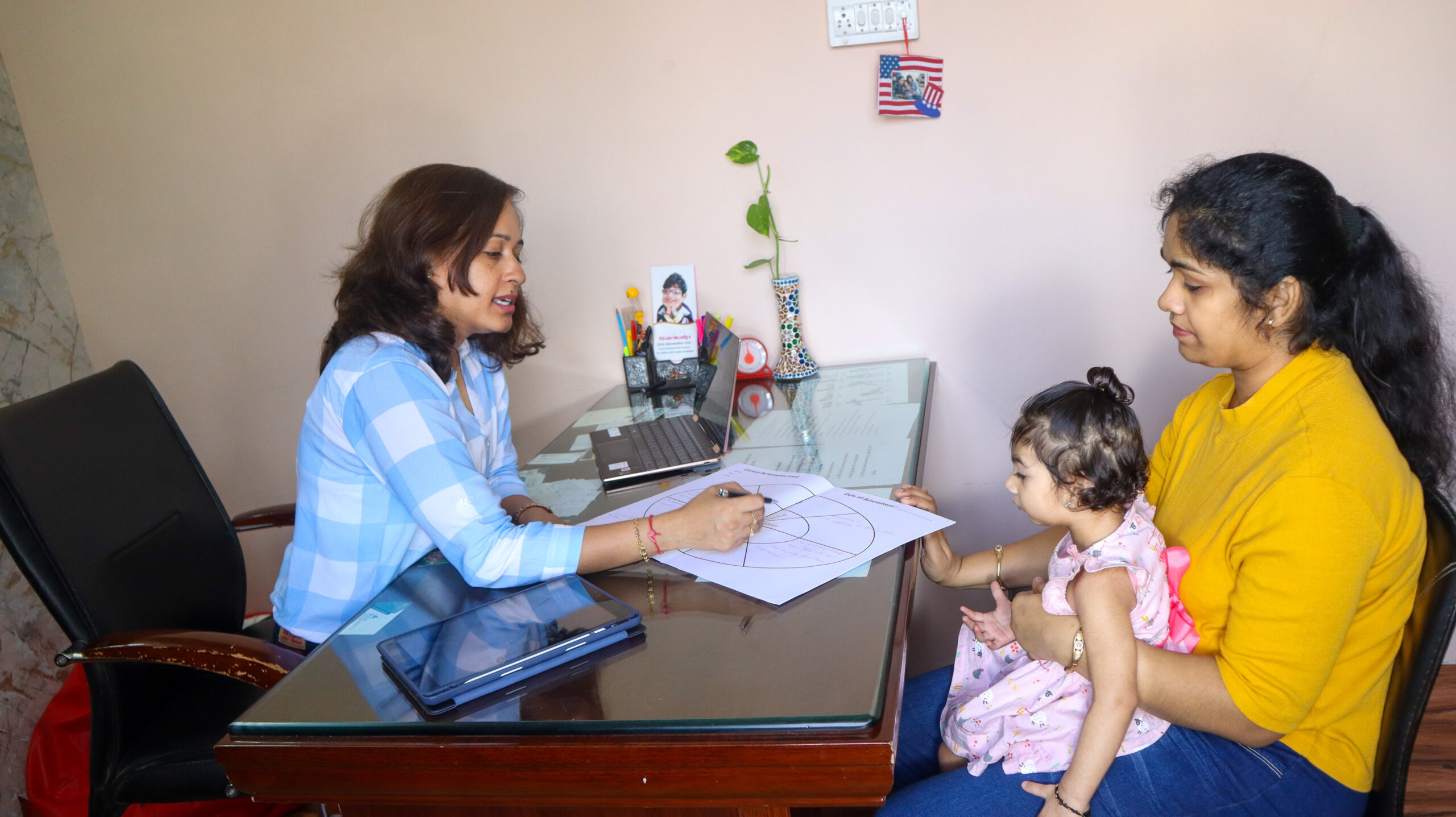
- Early screening and assessment of high-risk deliveries: Every child who has gone through a high-risk delivery must be on an early screening program for the first two years of life. It helps to detect the signs of any kind of delay and disorder in a child’s development.
- Early Intervention: Early Intervention is a must for every child with any kind of developmental delay to achieve milestones and learning. The early two years of life are very crucial for children. Any intervention taken at this stage is very fruitful.
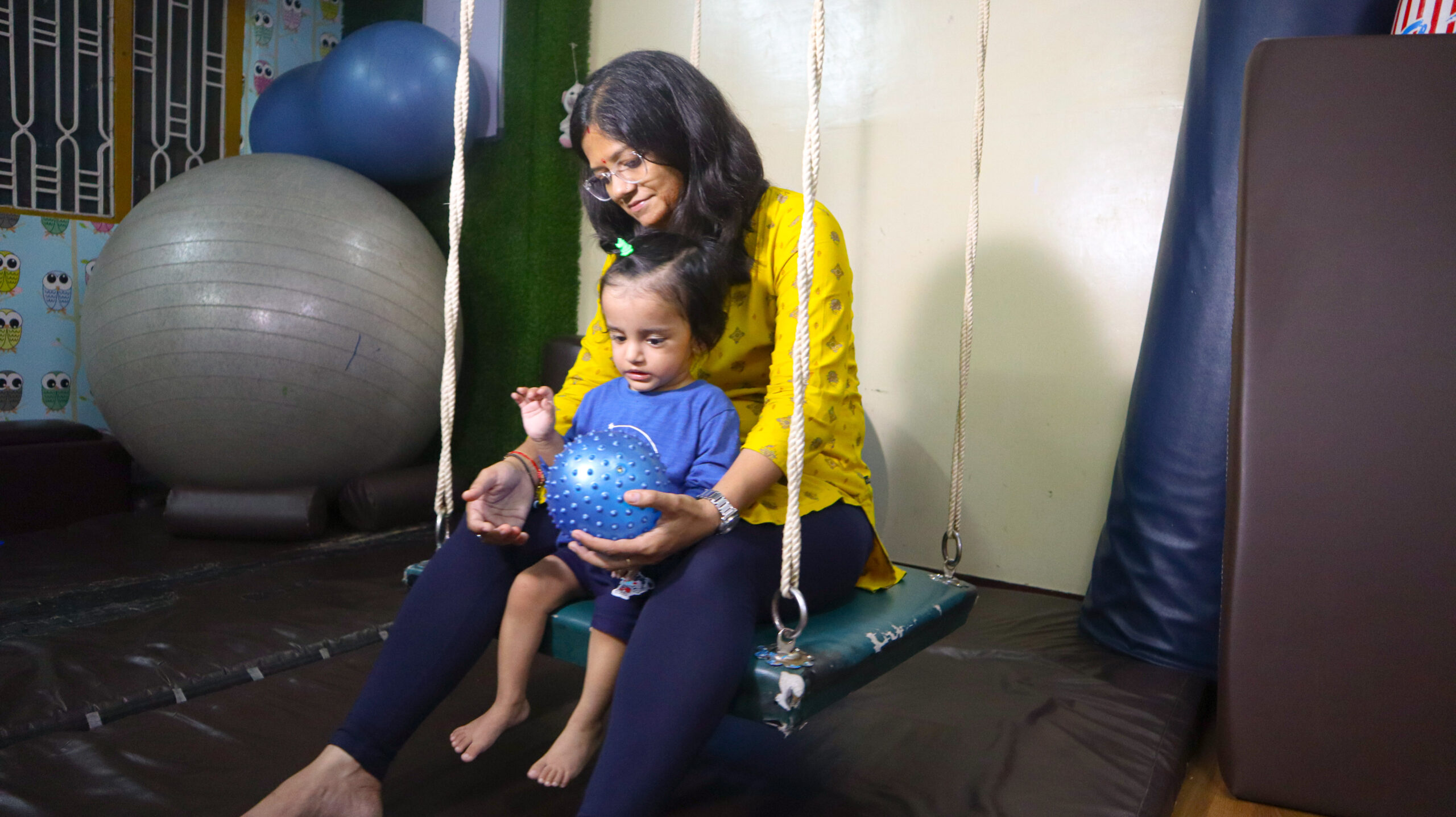
- Physiotherapy: Physiotherapy helps children to learn gross and fine motor skills like rolling, sitting, standing, walking, and reaching for a toy and using the hands.
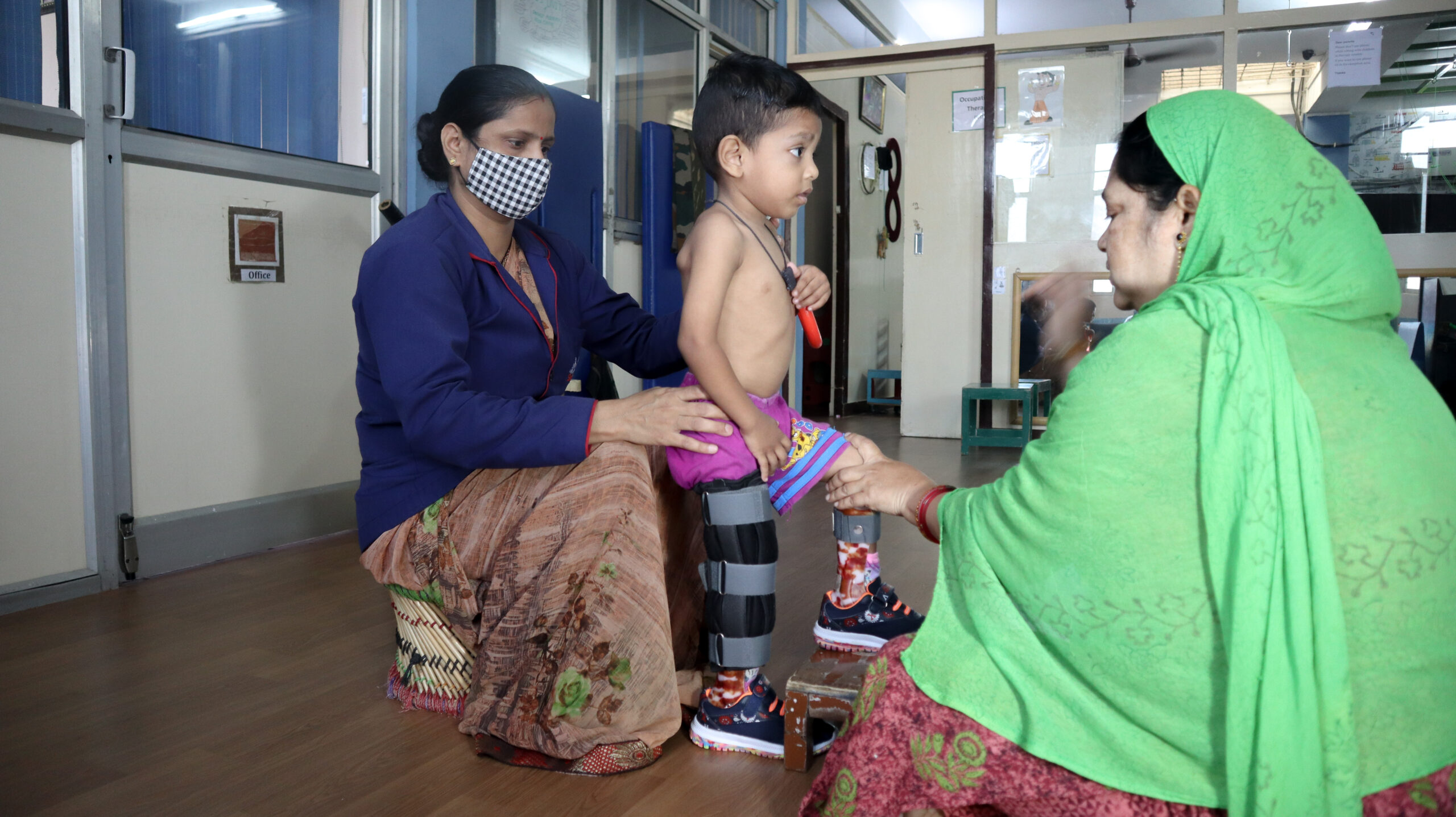
- Neurodevelopment Treatment (NDT): Hands-on therapeutic approach to treat children with neuromotor disorders like cerebral palsy, stroke, TBI and other neuromuscular dysfunctions. It encourages active participation and improves body functions.
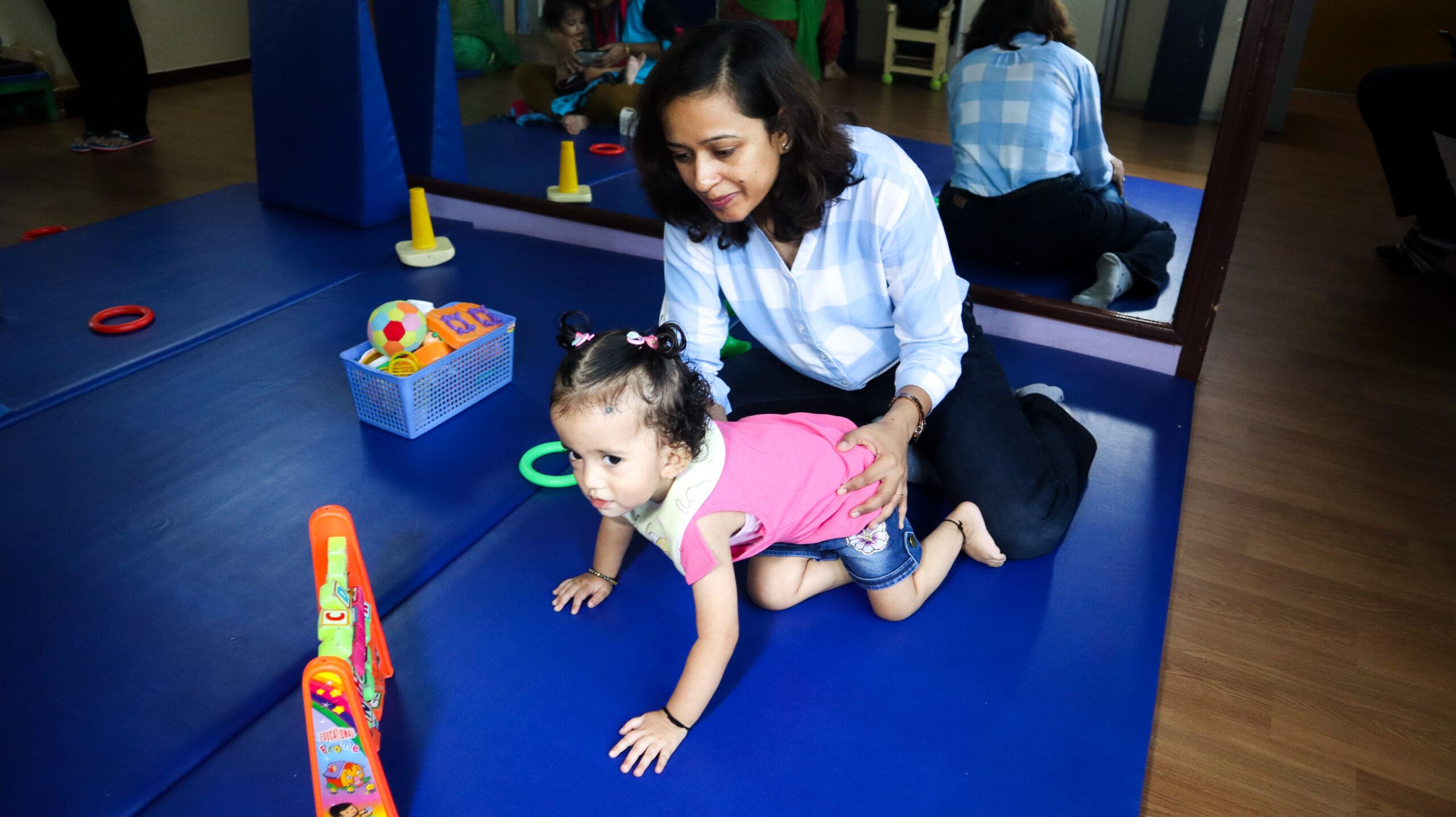
- Occupational Therapy: OT helps to manage sensory issues, and improves fine motor skills and activities of daily living like eating, brushing, dressing etc. It is helpful for children with Autism, ADHD, Cerebral Palsy, Down syndrome, Learning disability and other developmental delays.
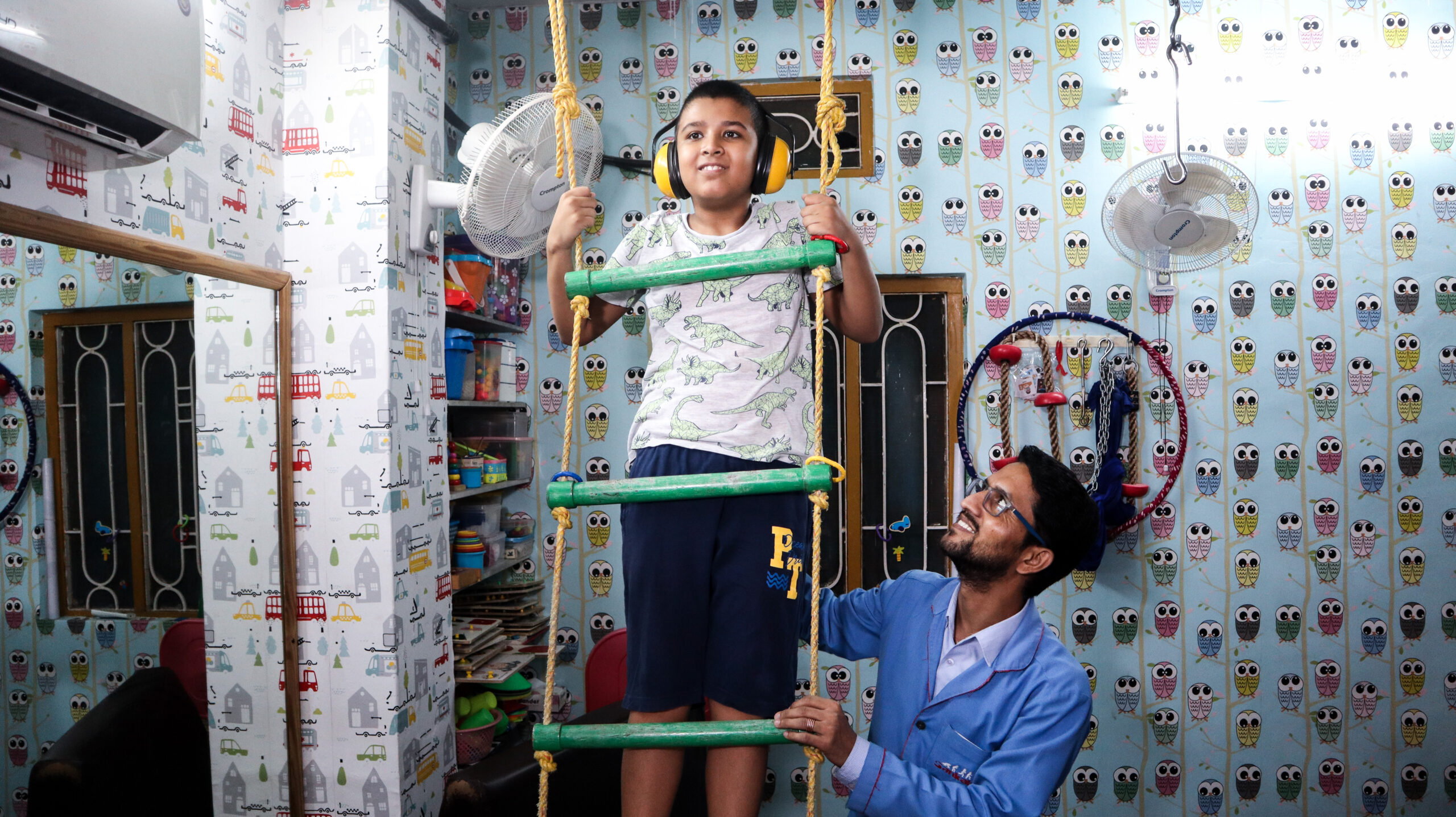
- Sensory Integration Therapy (SIT): This therapy is to manage the sensory system of the brain so that child can able to process the sensory inputs and learn various skills. It is useful for children with sensory issues like Autism, ADHD, Cerebral palsy, Down syndrome etc.
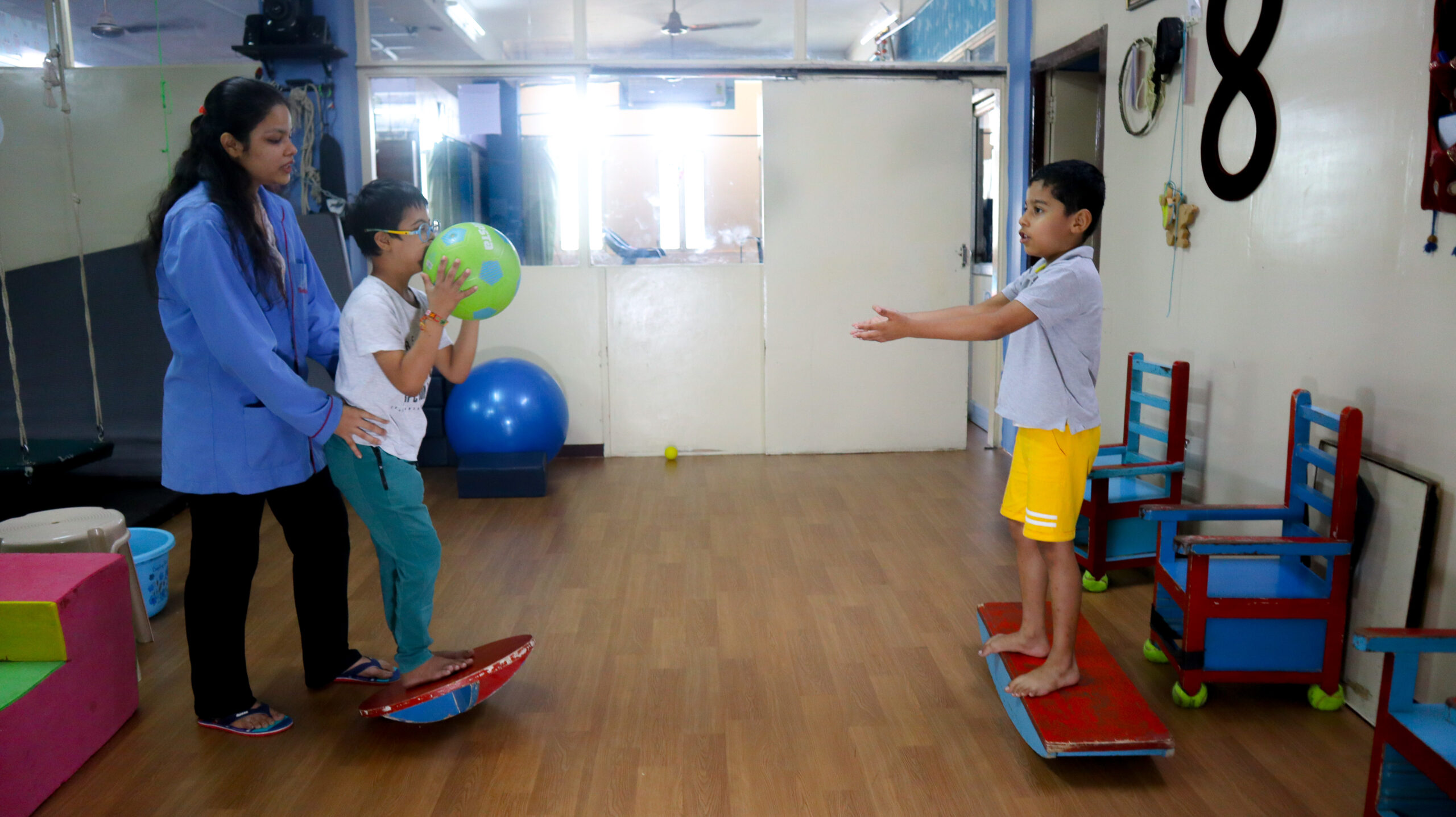
- Applied Behaviour Analysis (ABA): This therapy is based on the science of learning and behaviour. This is very helpful to children with Autism, ADHD and other related developmental disorders. It helps to improve social skills, language and communication skills, attention, and focus, and decrease problem behaviours using positive reinforcement.
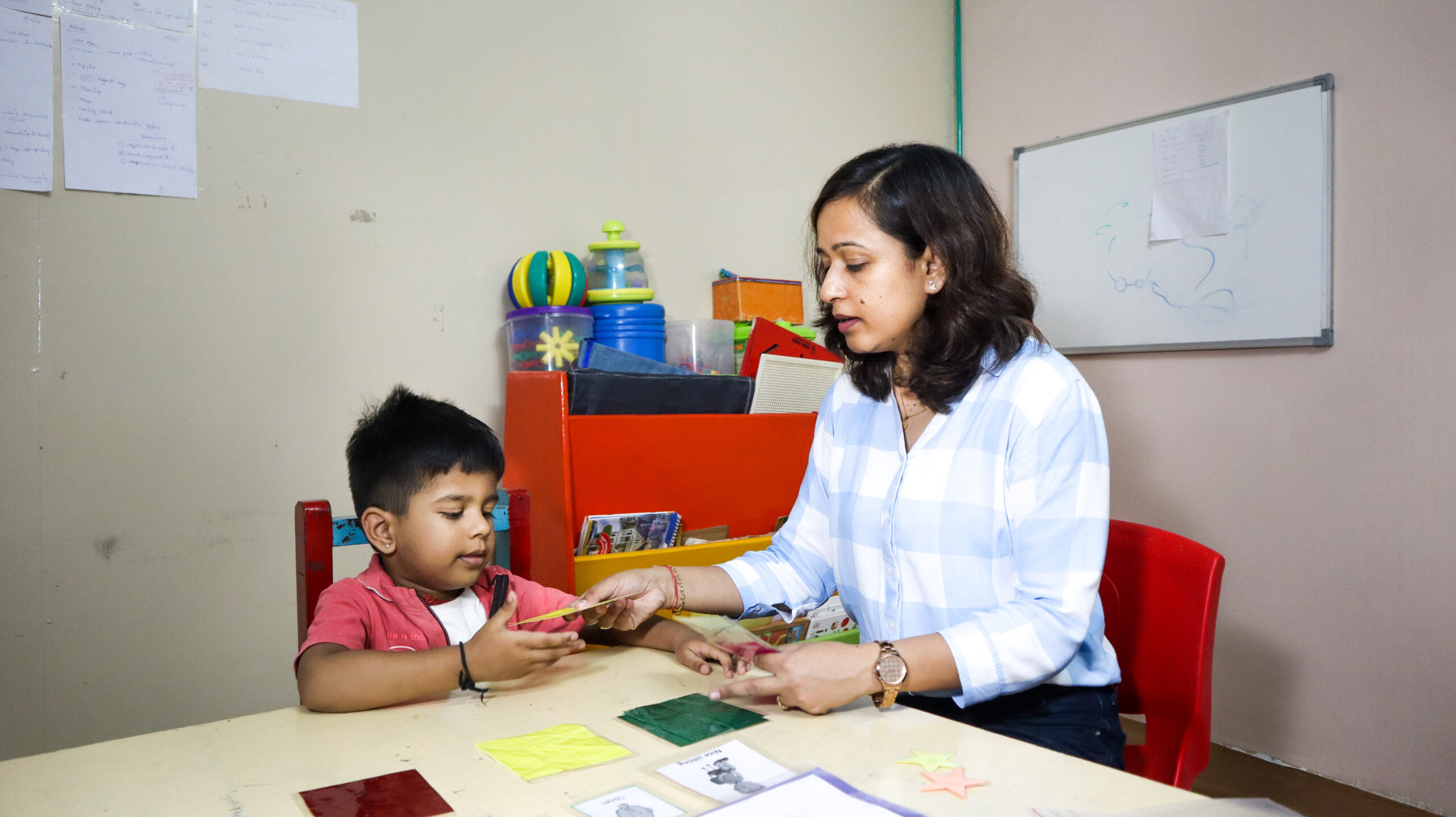
- TMR Tots: this is founded by Dr Susan M. Balm PT. A unique technique to treat asymmetry and to gain movement range. This is useful for children with Torticollis, cerebral palsy etc.
- Oral Placement Therapy (OPT): This therapy helps to improve oral functions like eating, drinking and speech clarity by focusing on the placement of the oral structure.
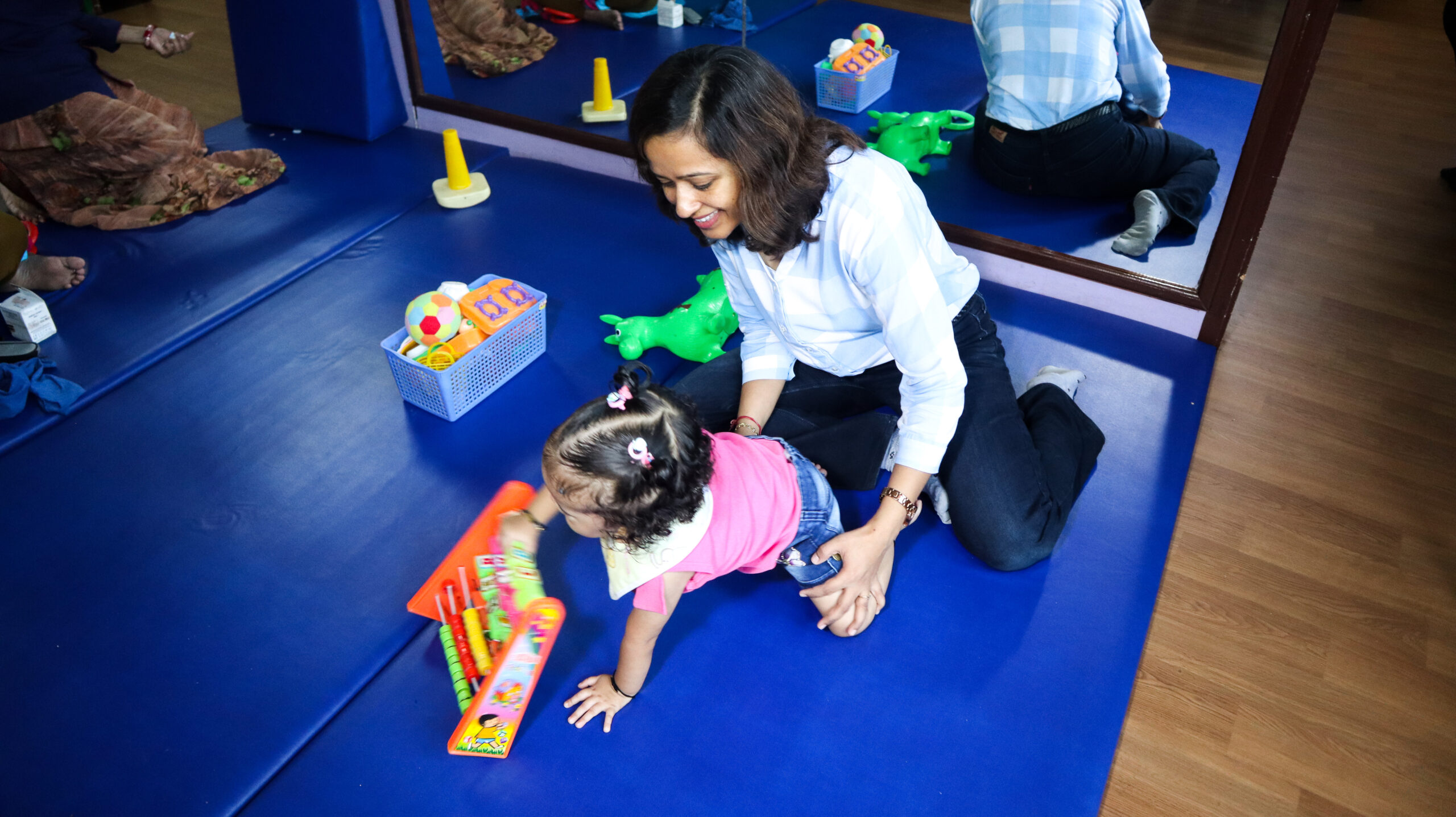
- Vision Stimulation Therapy: This helps to improve the functional visual skills of children with visual impairments. It involves a detailed functional visual assessment followed by training in visual skills like locating, focusing, tracking, gaze shifting etc.
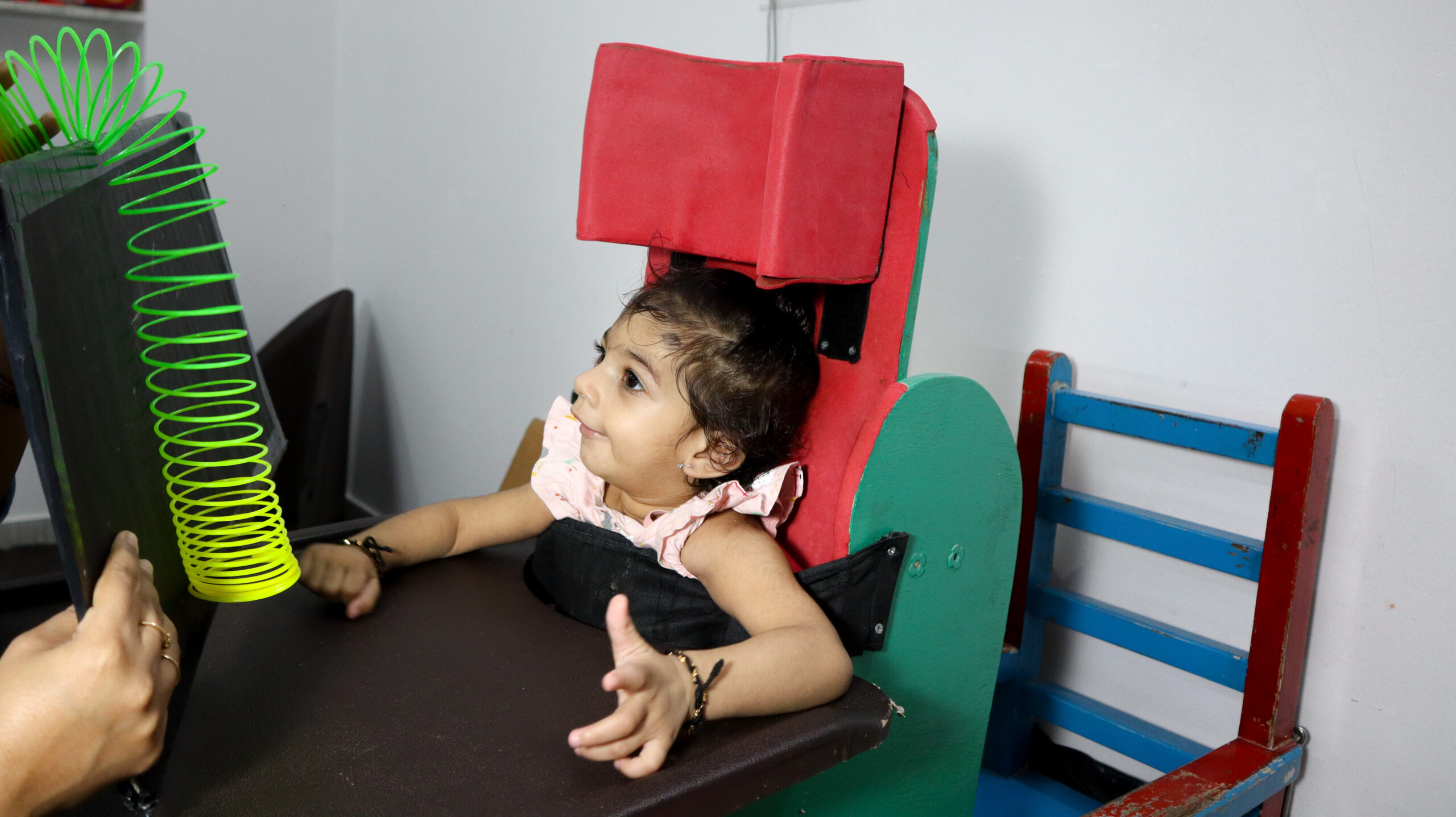
- Brain Gym: This therapy contains simple body movements to activate the brain. This leads to an increase in the flow of information to the brain. It makes learning easy and effective.
- DIR Floortime: Floortime is an intervention used to promote a child’s development through a respectful, playful, joyful, and engaging process. It uses the power of relationships and human connection to encourage the development of the capacities for self-regulation, engagement, communication, shared social problem-solving, and creative, organized, and reflective thinking and reasoning. This is mainly used for children with autism spectrum disorder.
- Early Literacy: We provide therapy to develop early learning concepts like learning about own body, things present in an immediate environment to a distant environment, and pre-reading and pre-writing skills.

- Language and Communication Training: This is for children with speech–language communication challenges. Verbal and alternative communication are both developed through specific strategies.
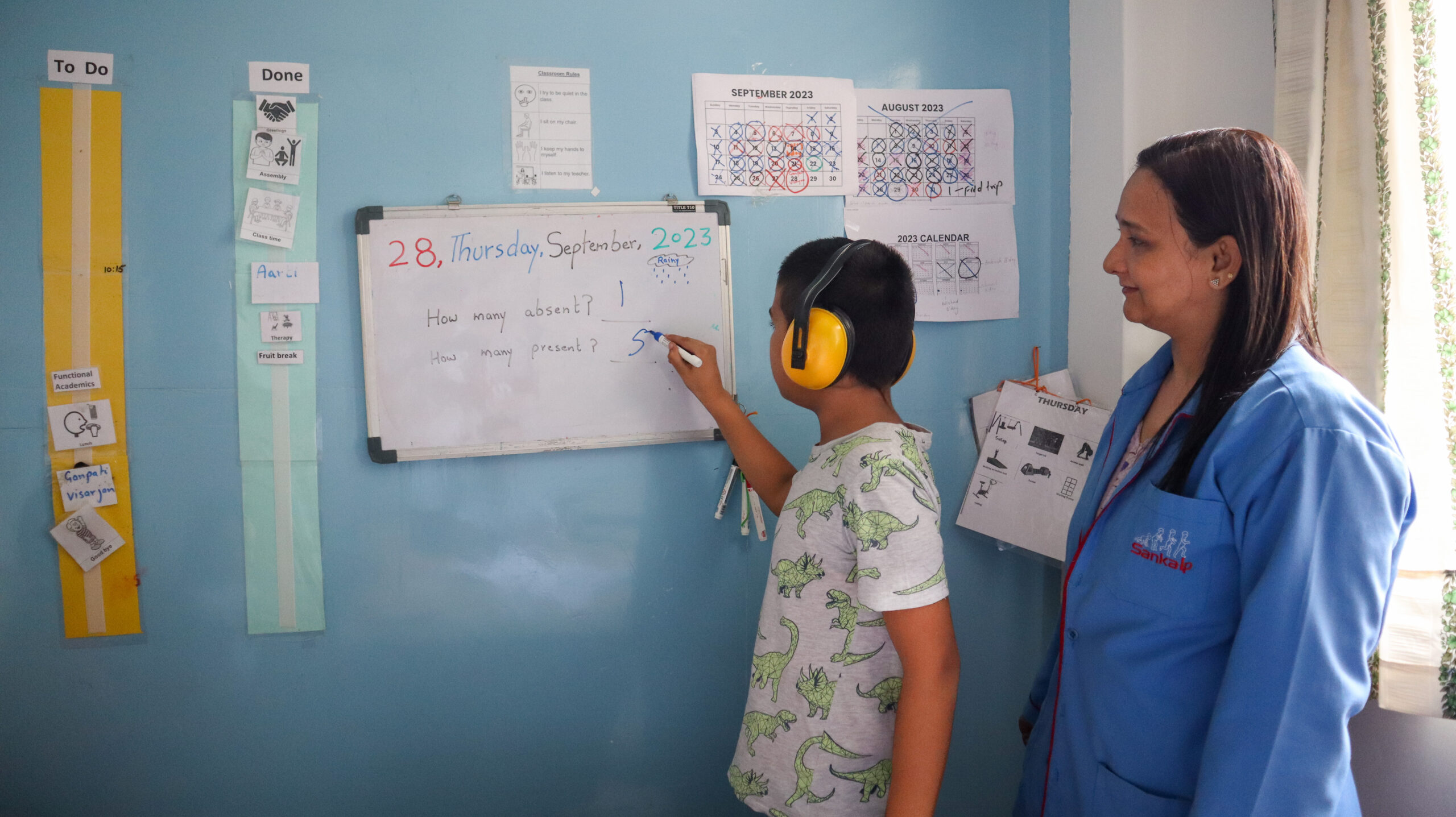
- Orientation and Mobility Training: Children with visual impairments are benefited by O & M training. It helps them to have a better idea of space and move independently.
- Theratogs: It is a garment and strapping system to improve postural alignment, stability, movement skill, and joint stability and facilitate muscle length. It activates the somatosensory system, increases body awareness and improves postural control.
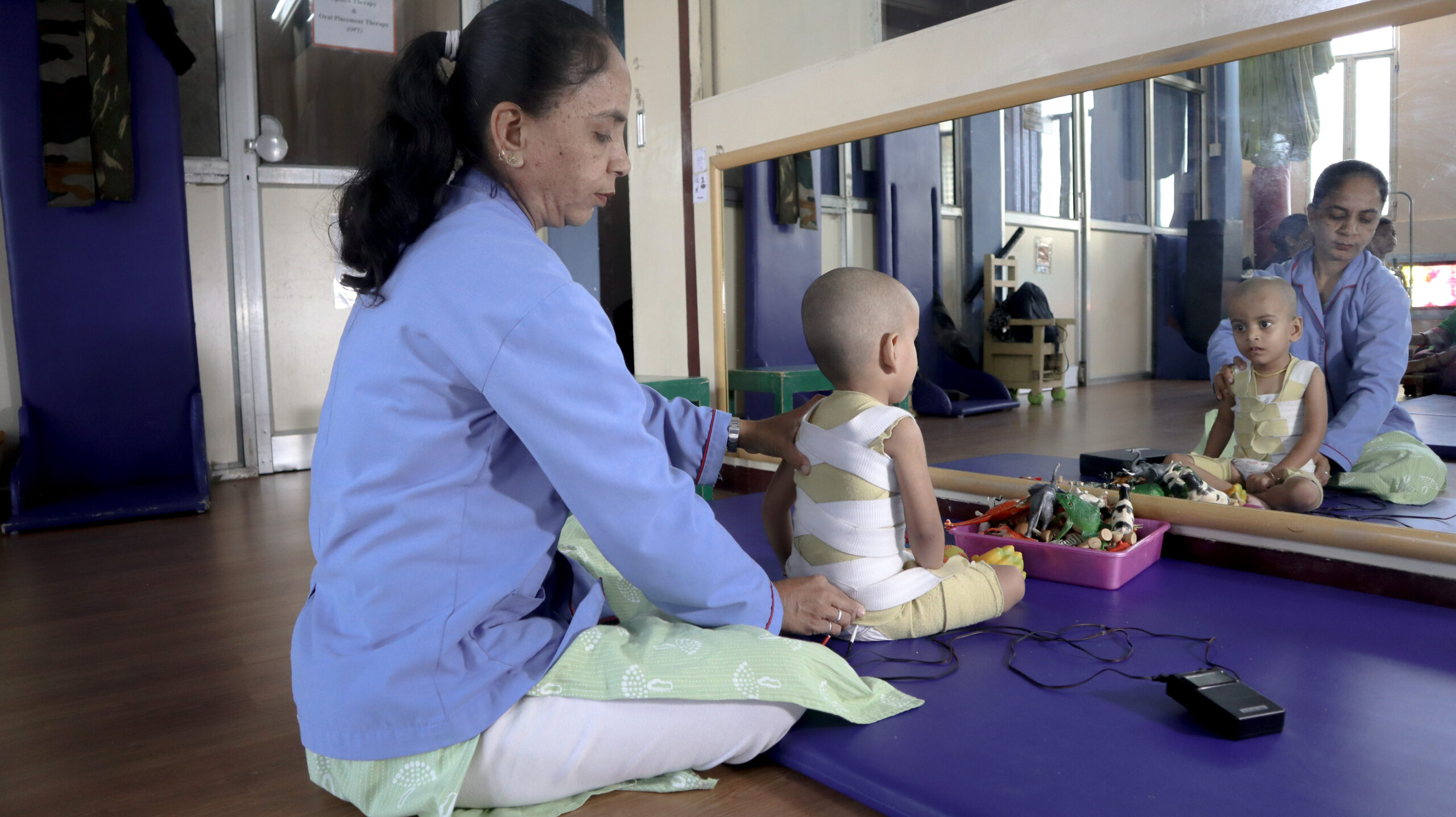
- Tapping: There are many types of tapes used by children to facilitate and inhibit muscles, and mechanical support, to give sensory inputs.
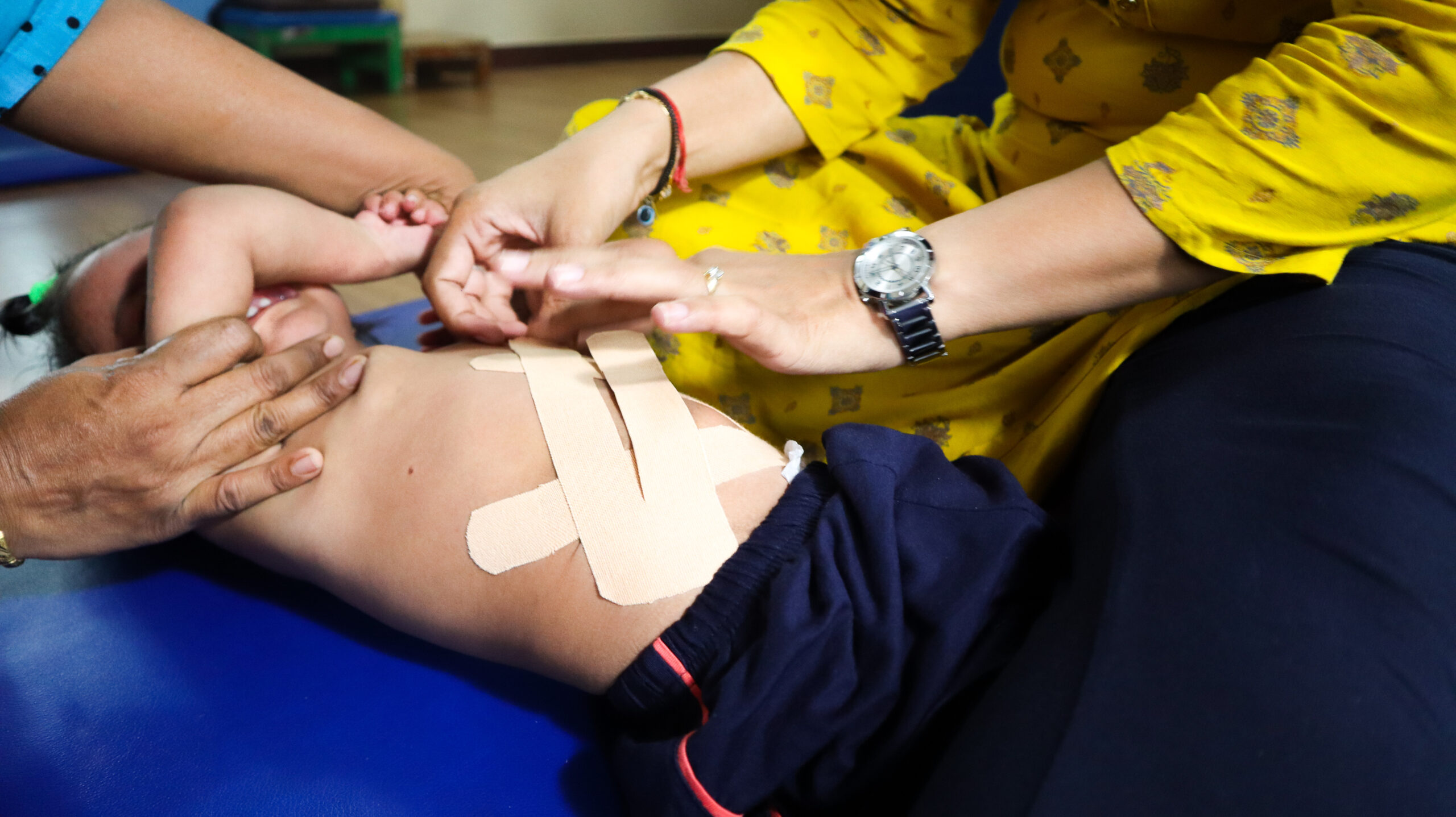
- Parent Training and Counselling: This is a crucial part of any therapy program. It is very important for parents to understand the disability and its intervention to help their child through a systematic approach for better outcomes.
- Home Modifications: Many children with special needs require some kind of modification in a regular home setting. It can be structural, extra support, sign boards, tactile signs, direction and amount of light, bright toys, modified play areas etc. After the home inspection, we help parents to do the modification based on the child’s needs.
